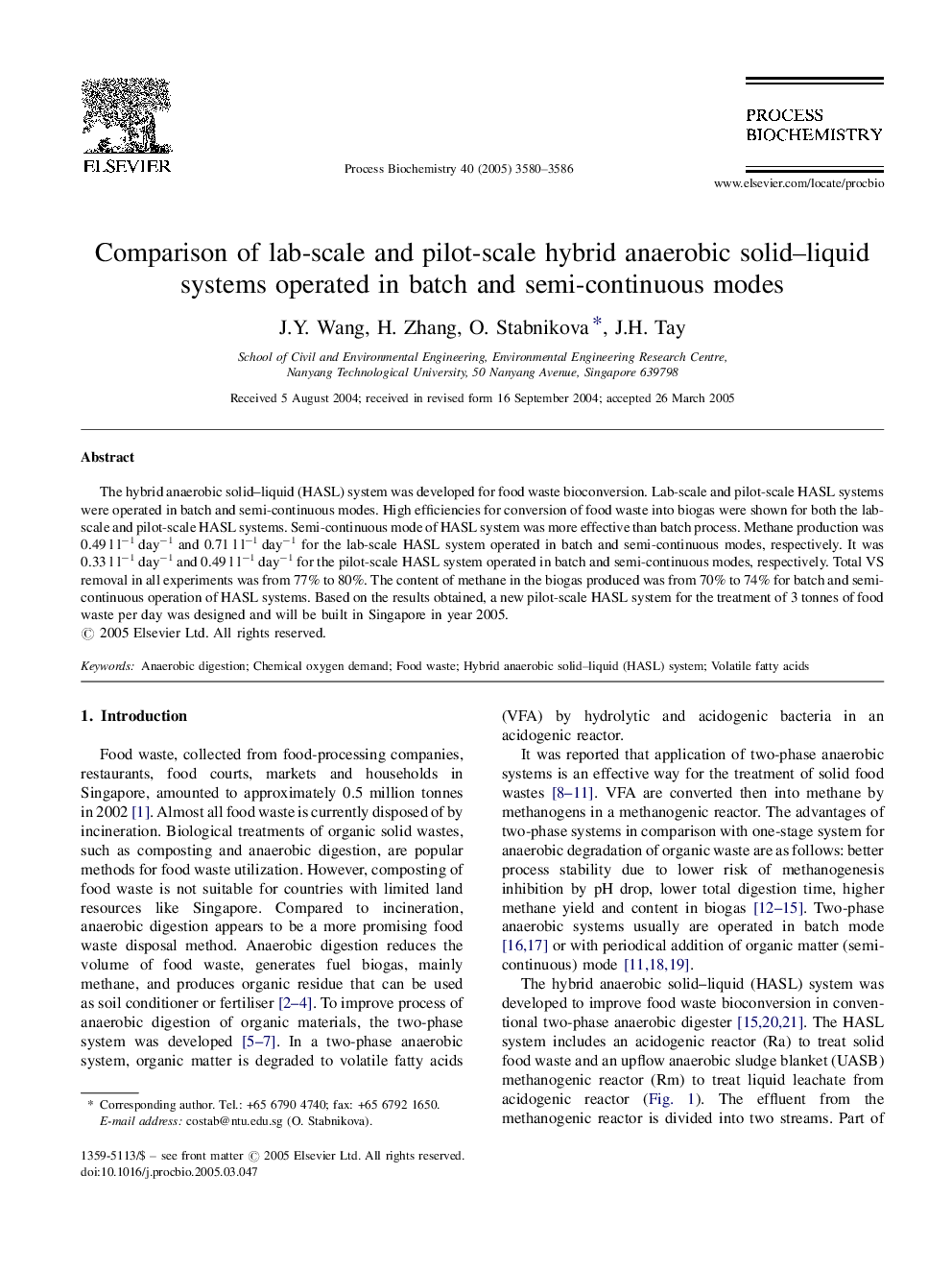| Article ID | Journal | Published Year | Pages | File Type |
|---|---|---|---|---|
| 36518 | Process Biochemistry | 2005 | 7 Pages |
The hybrid anaerobic solid–liquid (HASL) system was developed for food waste bioconversion. Lab-scale and pilot-scale HASL systems were operated in batch and semi-continuous modes. High efficiencies for conversion of food waste into biogas were shown for both the lab-scale and pilot-scale HASL systems. Semi-continuous mode of HASL system was more effective than batch process. Methane production was 0.49 l l−1 day−1 and 0.71 l l−1 day−1 for the lab-scale HASL system operated in batch and semi-continuous modes, respectively. It was 0.33 l l−1 day−1 and 0.49 l l−1 day−1 for the pilot-scale HASL system operated in batch and semi-continuous modes, respectively. Total VS removal in all experiments was from 77% to 80%. The content of methane in the biogas produced was from 70% to 74% for batch and semi-continuous operation of HASL systems. Based on the results obtained, a new pilot-scale HASL system for the treatment of 3 tonnes of food waste per day was designed and will be built in Singapore in year 2005.
